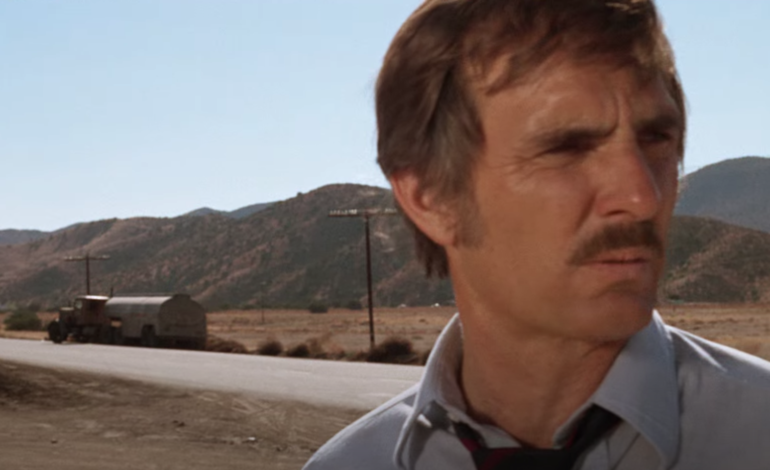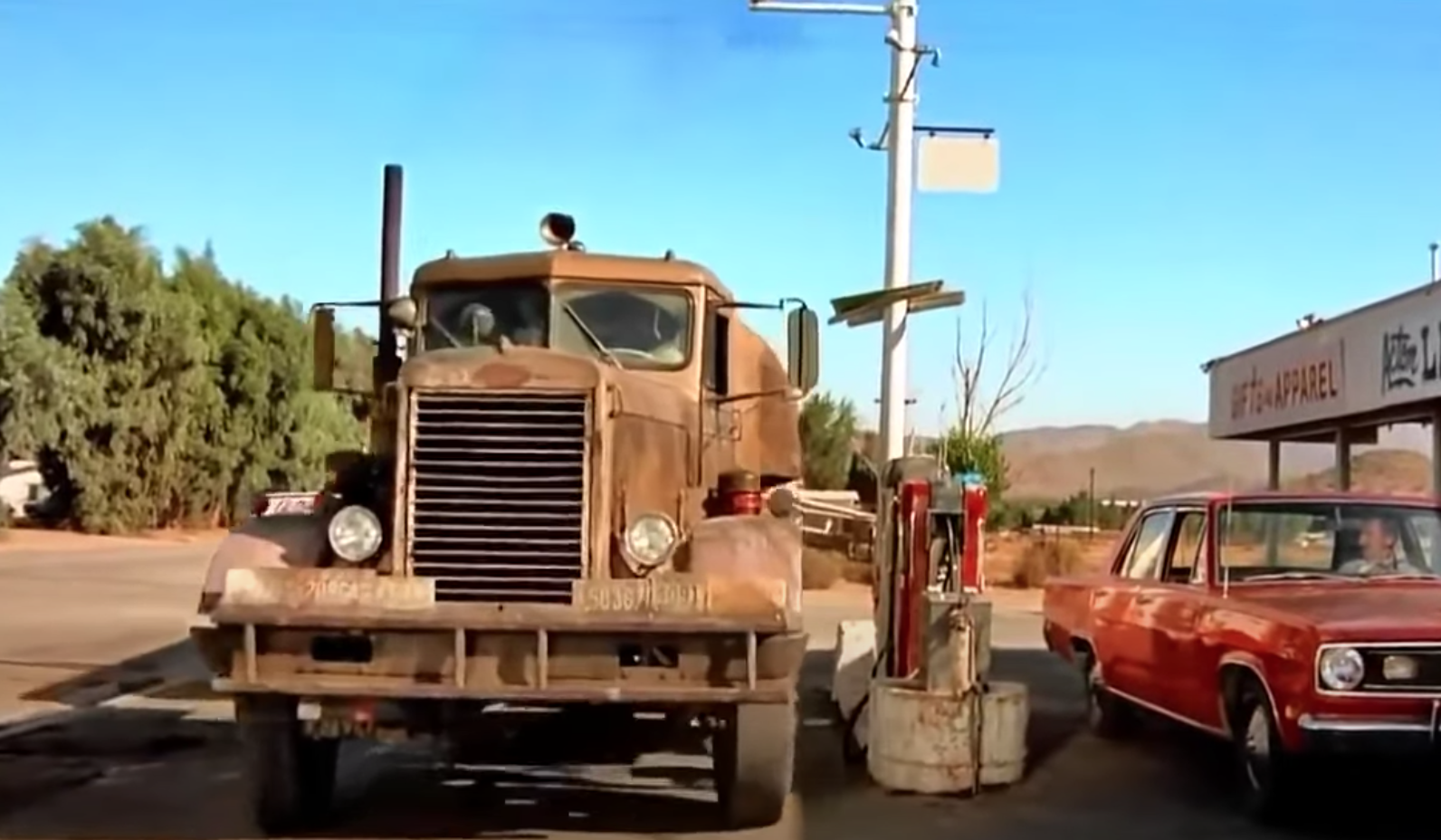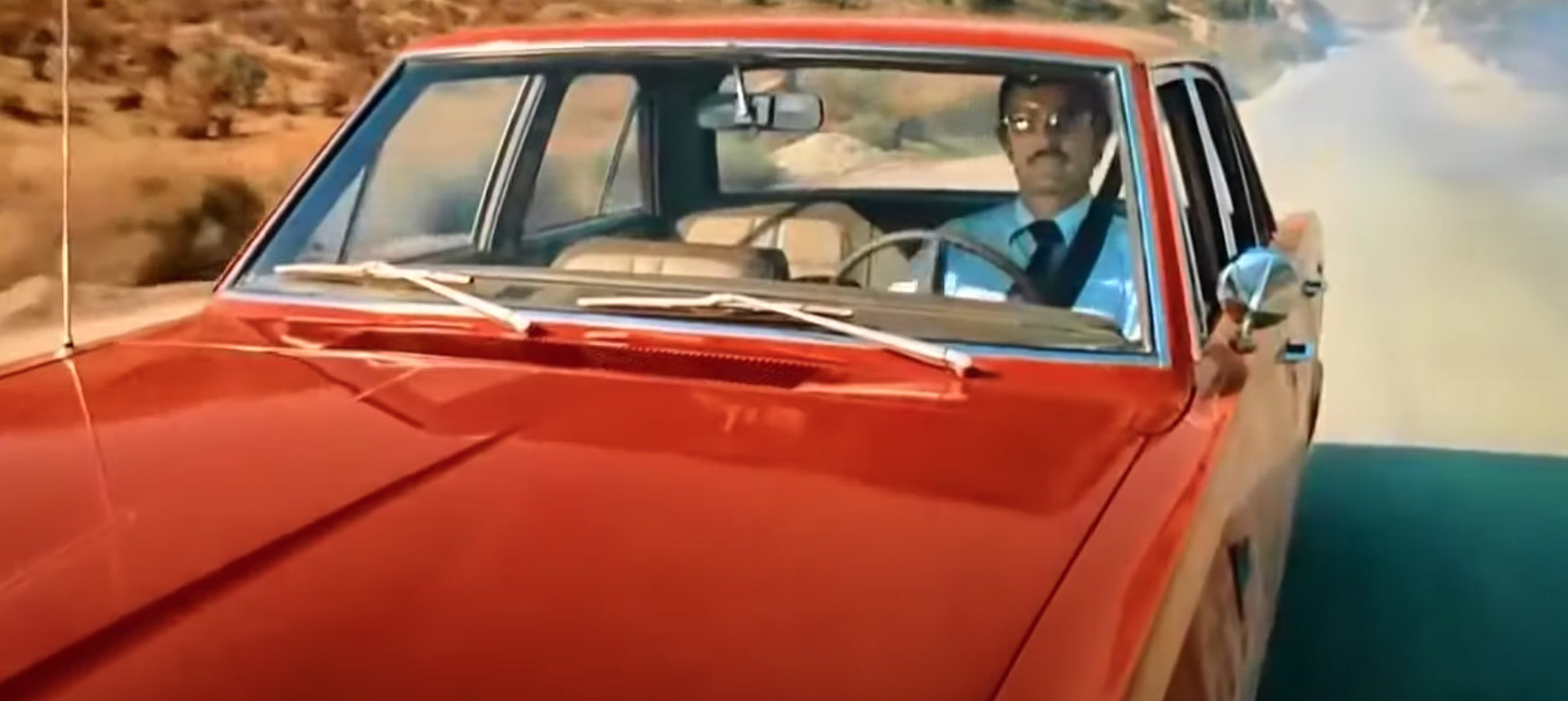

Steven Spielberg movies are the epitome of Hollywood dreams. While he has some of the most serious and important modern masterpieces in the forms of movies like ‘Schindler’s List’ (1993), and ‘Saving Private Ryan’ (1998), many of his movies are the material of dreamers. From ‘E.T’ (1982) to ‘Jurassic Park’ (1993) to the pinnacle of the adventure genre in the ‘Indiana Jones’ series, Spielberg’s films are movie magic incarnate. Beyond these, he’s dipped his toes into just about every kind of Hollywood film imaginable. While ‘Jaws’ (1975) is not only one of the purest films in existence, it’s regarded as Spielberg’s earliest masterpiece, but that’s not the case. Instead, his made-for-TV movie, ‘Duel’ (1971), brilliantly exhibits the essence of filmmaking.
‘Duel’ was indeed made for TV but was such a great success that it ended up in theatres. Spielberg’s most overlooked film, it’s a tremendous study of getting the most out of the least. The plot is extremely simple: David Mann (Dennis Weaver) is on a business trip on a long two-lane highway when a rusted gas tanker begins following and tormenting him. Beginning as with simple swerves and passes, then escalating dramatically to deadly levels, Mann has to come head to head with machine.


And that’s it! A plot so simple that it would only fare as long as a 10-20 minute scene in any other director’s hands, Spielberg keeps it unique for the entire hour and a half. This is one of many items that makes ‘Duel’ so great; it’s a flawless example of minimalistic film. With a simple plot, one main character, two vehicles, the open road, and very few other set pieces, Spielberg creates endless possibilities.
Beyond minimalism, ‘Duel’ breaks ground in the cat-and-mouse chase type movies. While we’ve seen endless chase stories of the type ranging from ‘Catch Me If You Can’ (2002) to ‘No Country For Old Men’ (2007), each of which has a unique spin, ‘Duel’ breaks it down to its core. With nothing but a chase to power the film, Spielberg examines countless ways to pursue, hide, and outsmart for both the hunter and the hunted.
The power of the story is rooted in the villain, which is much more of a “what” than it is a “who.” From the moment Mann first passes the tanker until the film’s end, we never see the driver of the tanker. This is no supernatural film, as we can see a hand on its steering wheel, but the tanker itself takes credit as the character. Having been chosen by Spielberg for appearing to have a face in its grill, it’s an embodiment of ominous evil, a faceless face of destruction. The mysterious history behind the tanker and its driver make it all the more engaging; Who knows if Mann is even the truck’s first victim?
The cinematography is particularly impressive for its budget, as it’s mostly used to characterize the tanker. Shot from angles ranging from high, low, bird’s eye, from the back, from the front, etc., we get all points of view of it as it gets closer and closer to Mann. The most effective of all comes from the low close up shots of the back of the wheels, screaming across the pavement as it hunts. Not only advanced for its low budget, but artistically advanced as the effect of the tanker would be halved if only shot from regular distances and angles.


Beyond the angles, the shot composition looks masterful throughout. Each frame containing both Mann’s car and the tanker convey such an engaging tension. Every angle and placement of the tanker is completely intentional, constantly giving off its dominantly evil presence.
The most brilliant moment in the film is one of the only few that doesn’t take place on the road. Mann is at a roadside café, when he notices that the Tanker is parked outside. Realizing that the driver of the tanker is inside with him, Mann intensely stares at everybody one by one, peaking through his fingers to put a face to the hands on the steering wheel. With Spielberg’s history of making some of the most tense scenes out there, its a delight to see him pull it off just as well at his earliest stages.
All things considered, the legacy of ‘Duel’ suffers from one thing only, the fact that Spielberg only evolved as a director since. A standout in any other director’s catalog, Spielberg still deserves great praise for the effort and passion he put into this early project. Rarely has a chase film been able to remain so fresh throughout with only the bare essentials at its disposal. Spielberg created one of the most overlooked gems of minimalist films, and of the thriller genre as a whole, all before he even made it big. Truly astounding work.
